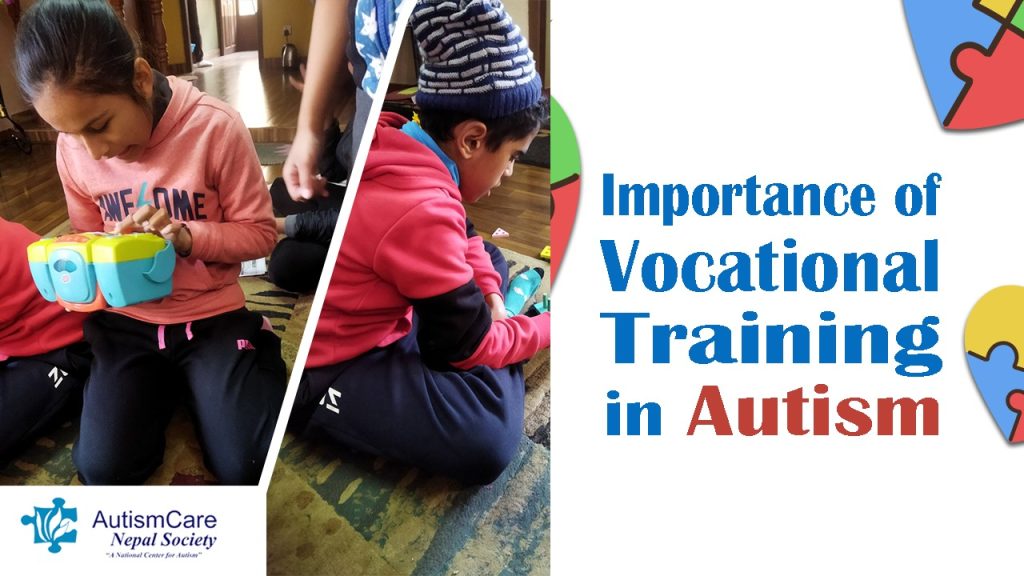This article explores the importance of vocational training in empowering individuals with autism, helping them acquire valuable skills, and promoting their inclusion in the workforce.
Students can develop skills that can be used in the workplace with vocational training that focuses on hands-on learning in simulated work environments. Students with autism would take classes to prepare them for a specific trade or career field in which they would learn through hands-on experience and apply what they learn. Through the training, students are able to feel autonomous and make decisions on their own. There is a greater level of happiness and productivity among them.
What is Vocational Skill?
An individual’s vocational skills are those that help them master a certain skill or subject related to their interest or occupation. In order to succeed in the workforce, you’ll need to have a variety of skills, but there are many essential skills that you need regardless of your job.
With vocational skill training, people with autism can improve their following directions, motor coordination, consistency, reliability, concentration, and consistency. Students should be taught social and functional skills that are transferable across environments. In order to be successful in the workplace, you need both soft skills and hard skills. Communication skills, following directions, maintaining good hygiene, time management, and dressing appropriately are all examples of soft skills.
A student’s involvement in vocational training, as well as paid and volunteer work, increases as he or she ages. To prepare them for transitioning from a school program to the workforce, a strong set of skills and increased work endurance is developed. In addition to working within their school or organization, students may also work in the community. There may be options for working in these environments such as delivering mail, operating a school store, reshelving books in a library, or performing light custodial duties.
Why is Vocational Training carry Importance in Autism?
An autistic child can benefit from pre-vocational training in the following ways:
- A better understanding of what ‘work time’ is and what ‘rest time’ is
- Maintain attention for a longer period of time
- Work without complaining even when it is not your preferred task
- When needed, seek assistance
- Follow directions with multiple steps
- Become accustomed to being interrupted temporarily
- Correct any errors and accept suggestions.
How is AutismCare Nepal Society Providing Vocational Training?
Aakaar Vocational Unit (AVU) was established by AutismCare Nepal Society (ACNS) in 2013. The purpose of this unit is to enhance the independence, self-reliance, and confidence of adults with autism. Vocational Units are places where young adults with autism utilize their pre-vocational training for independent work, self-sufficiency, and better living conditions. Besides promoting equal treatment and equal opportunities for people with autism, Aakaar Vocational Unit also empowers them.
Taking into account that every individual has different interests and capacities, AutismCare Nepal Society (ACNS) has established the Aakaar Vocational Unit to assist adults with autism in developing their vocational and work skills to their fullest potential through Pre-Vocational Training. It is crucial for the self-esteem of people with autism, irrespective of the extent of their support needs, to develop appropriate vocational skills.
Providing adults with autism with a work environment that focuses on individual strengths and promotes independence is the mission of the ACNS Vocational Unit. The ACNS Vocational Unit offers training in the following areas to adolescents and adults with autism:
- Loom
- Sewing
- Stitching
- Nepali handmade paper products
- Beading
- Computers
- Sorting and Sequencing etc.
Aakaar Vocational Unit (AVU) at ACNS
Adolescents with autism who graduate from Aarambha Pre-Primary School at the age of 18 yrs old and interested graduated students with autism are enrolled at Aakaar Vocational Unit (AVU). It mainly focuses on the practical vocational and life skills activities. Students with autism already learn the vocational activities during the pre-vocational period at school.
In Aakaar Vocational Unit (AVU), altogether 7 adults with autism are enrolled during fiscal year 2078/079. Among them, 6 are male and 1 is female. Various types of activities are carried out by them.
Recently, this year, we have started our new class in which our children are also enrolled in bakery classes and grocery shops. During these activities, young adults with autism help to bake the bakery items such as doughnuts, cookies, muffins and they are sold in the grocery shop which helps them to learn the concept of product and money exchange.
